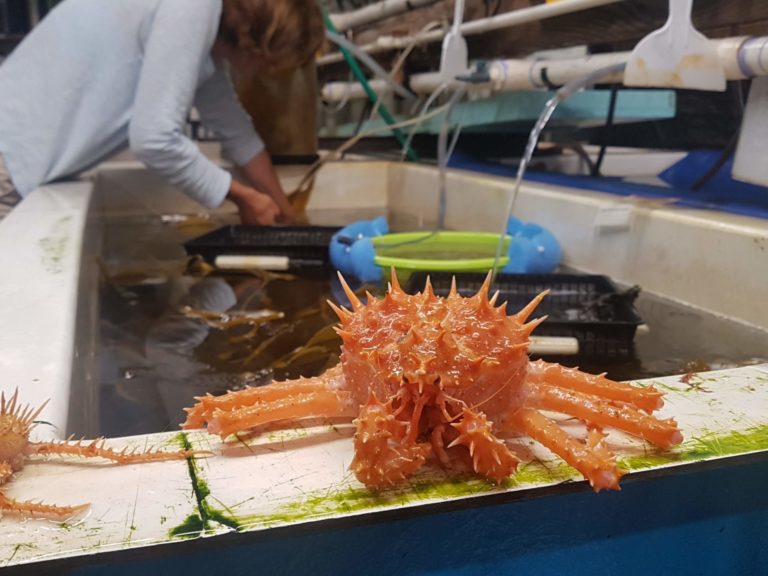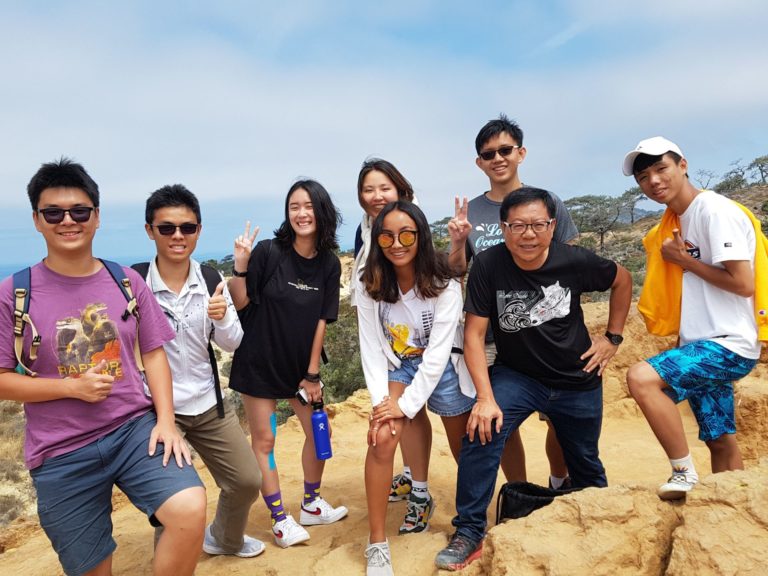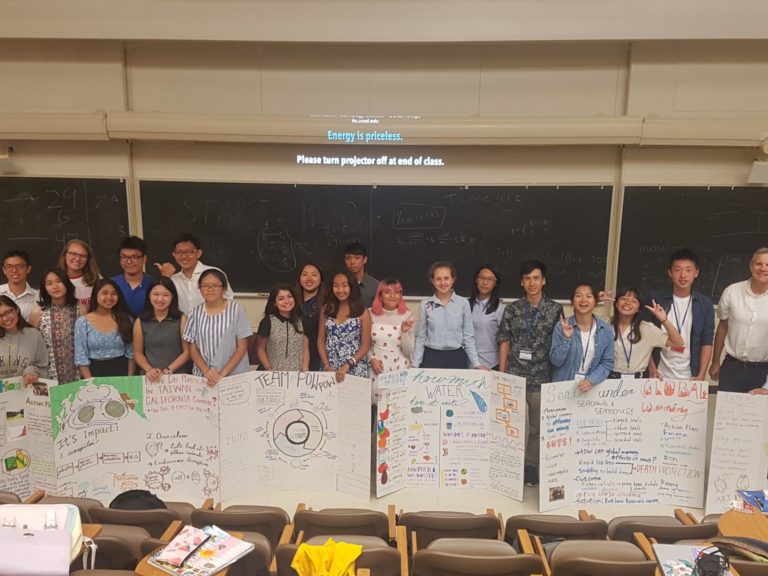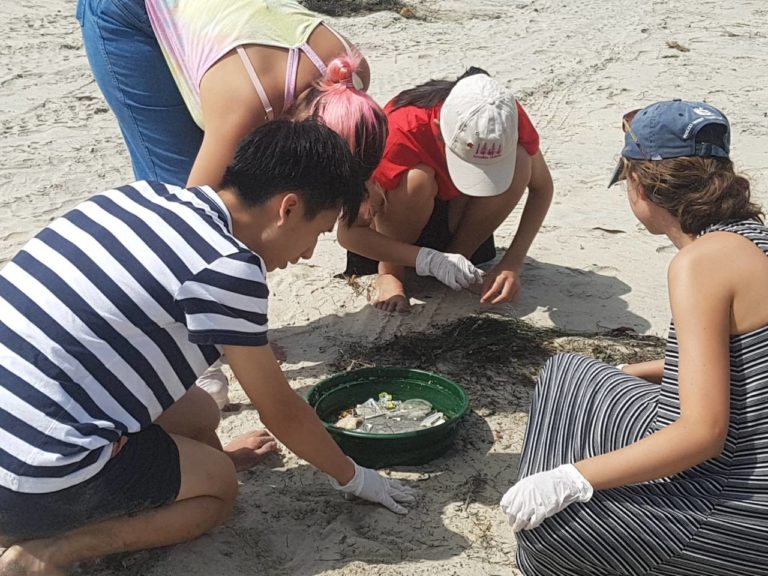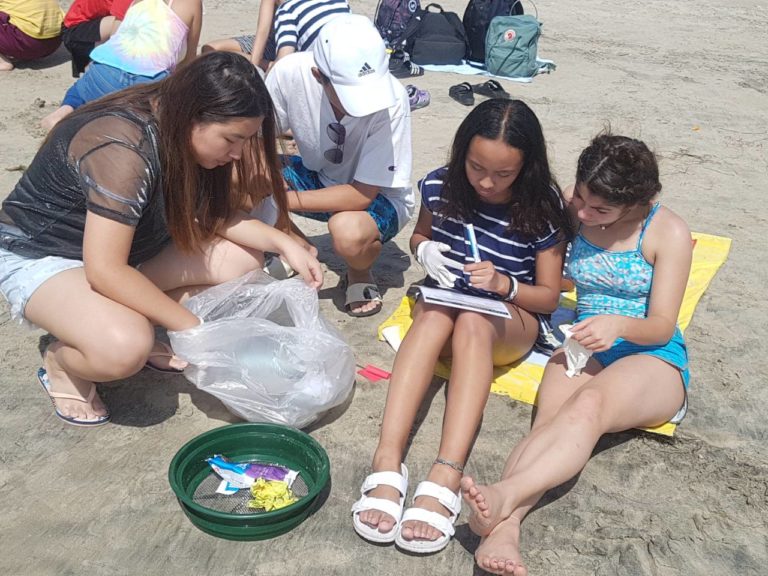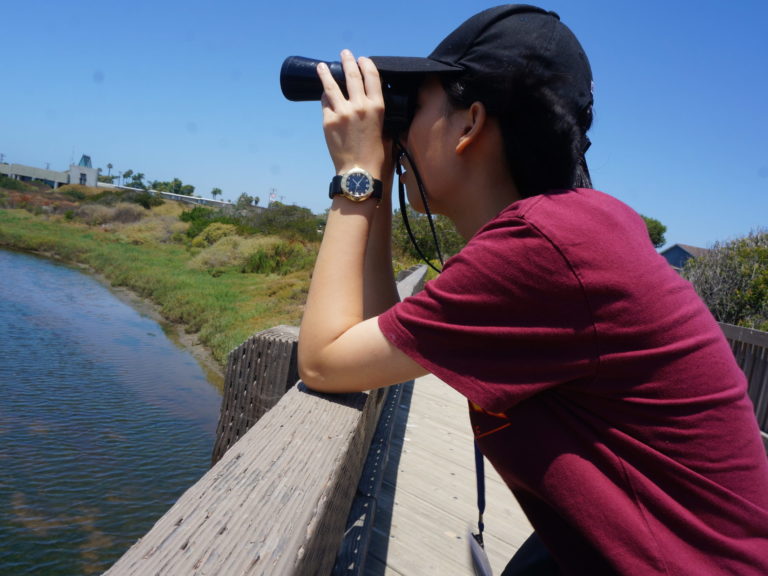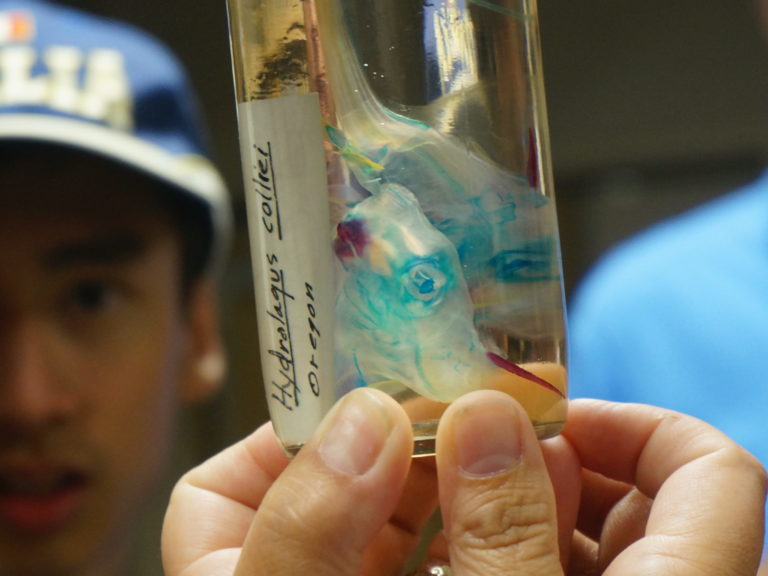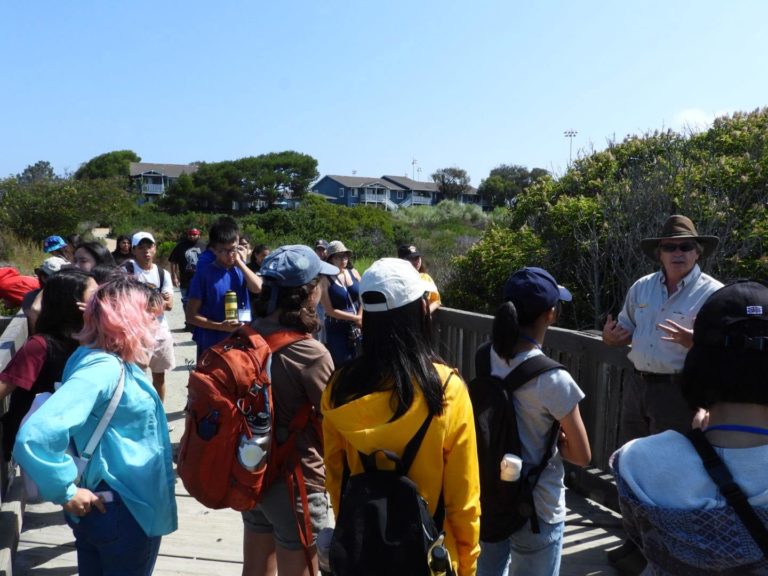We have much more to do and your continued support is needed now more than ever.
Water Connects Us All
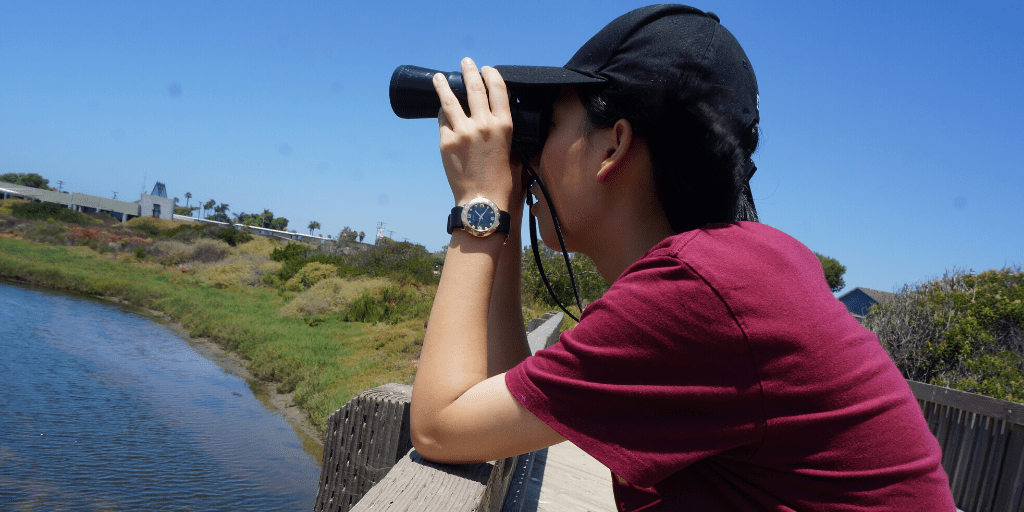
Students Share Stories to Advocate for Clean Water
Water connects us all, from watersheds to oceans, to wetlands. In the summer of 2019, students from Taiwan, the Kumeyaay Nation, and southern California participated in an environmental summit hosted by the National Wildlife Federation and the Ministry of Education Taiwan at the University of California, San Diego. Students were selected because of their voices and action for environmental stewardship and protection of the water sources they live near. When peering at a map, the bodies of water surrounding Taiwan and Southern California stretch across thousands of miles, but over the course of the summit, students from both places discovered just how closely they were connected by the very thing that separated them—water.
Valerie Dao, a high school senior from Los Angeles, CA was one of those students who attended the 8-day Student Conservation Leadership Summit. Students like Valerie learned from indigenous elders, Scripps Institution of Oceanography scientists, and Tijuana River Watershed researchers about the interconnection between human health and wildlife habitat according to the protections dedicated to streams and wetlands. Students addressed research questions that tackled plastic pollution, eutrophication, and threatened and endangered species. A year later, Valerie reflects on her experiences and how the program has continued to impact her passion for the environment.
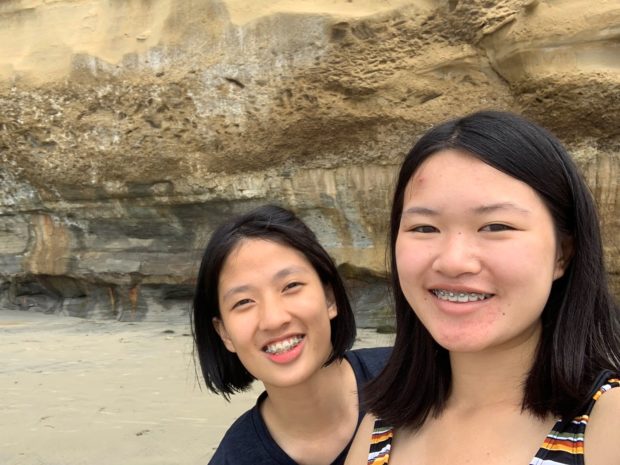
Ever since my first beach cleanup, I vowed to become an environmental advocate. I wanted to educate myself and others about environmental problems and how it was affecting living creatures around the world. This passion led me to found an environmental club at my high school, named Heal the Bay club, after the Santa Monica-based nonprofit organization.
The theme of the Student Conservation Summit was how water connects us all, which overlaps with the message of my Heal the Bay club. This summit opened my eyes to multiple fields in environmental studies from guest speakers and others I talked to in our numerous activities. It took place at UC San Diego, so we were given access to the prestigious Scripps Institute of Oceanography. Our goal of the week-long summit was to produce a group presentation centered around a research question. My group presented, “How do plastic amounts in Taiwan and California compare and how does it affect our health?” We took part in beach cleanups, guest speaker presentations, and had multiple excursions to places such as the Tijuana River National Estuarine Research Reserve and Birch Aquarium.
Topics emphasized at the summit included the interconnectedness of the modern world. I met other students from the U.S., Taiwan, and Kumeyaay Nation members and learned how each group was dealing with environmental issues such as climate change and plastic pollution. I was impacted by the Native American families describing how environmental changes were affecting their lifestyle and noticing the change in vegetation types and amount over time. The organizers from the National Wildlife Federation also taught us how to apply scientific journalism and community science into our focus projects for the week. I was exposed to the effectiveness of storytelling in bringing people into my story
I brought what I learned from this summit back to my Heal the Bay club at my high school. I taught my members to take advantage of the interconnectedness of the internet to contribute to scientific projects through multiple phone apps. I shared storytelling techniques to strengthen members’ environmental messages through a series of scientific journalism projects.
I learned to become a better environmental advocate and to inspire and teach others to become one too.
Share Your Story to #ProtectCleanWater
Students like Valerie are using the Eco-Schools USA WOW Pathways – Watersheds, Oceans and Wetlands – to investigate the health of their local waterways, protect wetlands, and promote awareness of ocean conservation issues. Do you have a story to share about the importance of clean water and healthy watersheds? Whether you need clean water for drinking, swimming, fishing, wildlife watching, or kayaking, share your story today about why you want to #ProtectCleanWater! And follow @EcoSchoolsUSA on social media for ways to take action for World Oceans Day, Monday, June 8th.

